What it means to be a City Girl
If you're reading this from a tiny apartment or in a never-ending line at the grocery store, this one is for you.
I identify as a city girl — though I was born in a small town.
I was born in my mother’s family home in Barrackpore — a name that might ring a bell if you’re familiar with India’s torrid past. Barrackpore is a historic town, etched into our national memory as the place where the legend of Mangal Pandey began; indeed, I lived right across the street from where he was executed. Growing up in such a landmark setting, I couldn’t help but absorb its rich history and vibrant culture. After that, my childhood began its restless journey through various small towns across India, thanks to my father’s transferable job, until we finally settled in Kolkata, the busiest city in my state.
Growing up in small towns, I often felt misunderstood and isolated. I was a day scholar at a boarding school in Darjeeling where most students lived on campus and formed close bonds, leaving me on the sidelines. My only true friend was Sunita, the daughter of one of the school teachers, who taught me to climb big rocks and helped me catch up with homework.
Then, when I was ten, my parents bought a modest apartment in Kolkata. The next eight years were transformative: I began to feel like I belonged. I slowly found my tribe — not because I suddenly became outgoing, but because the city’s constant buzz and diversity made it easier to connect with others.
the city as a portal
I have always been an avid reader. As a child, books were my gateway to places I had never seen: bustling metropolises, quaint European towns, ancient ruins, and glittering skylines. I would lose myself in their pages, imagining the day I would walk through their streets, breathe their air, and experience their rhythms firsthand. But for a long time, those places remained distant, existing only in the realm of my imagination.Living in a city, however, brought me as close as I could possibly get to those faraway lands without actually boarding a flight.
Cities have a way of collapsing distances, of bringing the world to you. For example, I currently live in Kolkata, a city that feels like a gateway to Southeast Asia. From here, places like Kuala Lumpur, Ho Chi Minh City, and Bali are just a short flight away — closer in travel time than many Indian cities in the north or west. This geographical proximity makes the world feel smaller, more accessible, as though the borders between nations are mere suggestions rather than barriers.
The eastern part of India also shares a border with China, which adds another layer to this sense of connectedness. There’s a joke that goes around: if I ever had to become a communist, I could move to China faster than I could reach Kerala, India’s own left-leaning state. The sentiment isn’t just about political ideology; it highlights how travel within India itself can sometimes feel more cumbersome than reaching an entirely different country.
Anyway, coming back to the point. Living in a city means that all these cultures are merely hours away: by plane, by train, sometimes even just by walking into the right neighbourhood. It shrinks the world, making it feel less vast, less intimidating. The unfamiliar becomes familiar, and the distant feels within reach. You don’t just read about different cuisines, you can try them. You don’t just imagine foreign customs, you can witness them in pockets of the city where different communities have made their homes. The world is your oyster, as they say, and a city is the closest thing to having a passport to it all.
the power of cities in shaping great minds
On my sixteenth birthday, my dad gifted me a book Creating Minds by the renowned psychologist Howard Gardner. It wasn’t the kind of book most teenagers would have been excited about, but I devoured it. In it, Gardner examined the lives of seven extraordinary figures — ranging from Freud to Mahatma Gandhi to Mozart — each a genius in their own right, yet vastly different in their fields. His goal was to uncover common patterns in their creativity, to understand what made them exceptional.
One of the key observations Gardner made was that all seven individuals had, at some point, left their hometowns and moved to major cultural centers. Freud for example, was born in Freilberg, Moravia, a small town of five thousand. Later his family moved to Vienna when he was four years old, and he lived and worked there until the Nazi annexation of Austria in 1938, when he fled to London.
In a similar vein, Einstein spent his childhood in Ulm, Germany (where he was born), and then in Munich, Germany before moving to Italy and Switzerland for his education.
Cities, it seems, are not just places of residence but incubators of greatness. “Perhaps genius needs to gain distance from the place where it first resided”, observes Gardner.
Reading that, something clicked for me. It reinforced what I had always suspected — that if you wanted to expand your mind, push your limits, and become someone larger than your circumstances, you had to move toward where the action was.
cities as cultural epicentres
The thing I love about cities is that they connect you to the larger world.
They expose you to different ways of thinking, living, and being. They teach you that there is no single "correct" way to exist. People come from different backgrounds, hold different beliefs, and live by different values, and that’s okay.
Cities force you to confront diversity in a way that makes you more open-minded. When you're surrounded by people who don't look, speak, or think like you, you either learn to coexist or you isolate yourself in a bubble of ignorance. Over time, city life makes you less judgmental, more adaptable, and more aware of perspectives beyond your own.
Contrast this with the small-town mindset, where social norms are rigid, traditions are unquestioned, and stepping outside the boundaries of acceptable behaviour can result in exclusion, gossip, or outright ostracisation. In small towns, people often grow up under the weight of generational expectations, their lives mapped out before them. There’s little room for experimentation, for reinvention, for questioning the rules. The fear of being different is real because being different can mean being alone.
cities as hubs of social evolution
Is it any wonder, then, that most cultural revolutions started in cities? Wars of independence, the Renaissance, human rights movements, feminism—these movements flourished in urban spaces because cities create the conditions necessary for change. They bring together intellectuals, dissidents, and dreamers. They provide the infrastructure for discussion, the critical mass of people needed to demand change, and the anonymity that allows rebels to organise without immediate social repercussions.
Take the LGBTQ+ movement, for example. Would it have gained the same traction if it were confined to small, conservative towns? If activists were simply screaming their demands from the rooftops of isolated villages? No.
It was in cities—New York, San Francisco, Berlin—where the movement found its voice, where queer communities formed, where Pride marches took to the streets, and where policies began to shift. Cities gave the movement visibility, momentum, and political power. The same pattern repeats throughout history: when the world changes, it changes first in the cities.
cities as spaces for connection and belonging
Another thing I love about city life is its ability to bring people together. Loneliness, at least in the absolute sense, is a myth here. Even if you live in a tiny apartment by yourself, the city offers endless opportunities to meet new people and form connections.
Unlike in small towns, where social circles are often pre-defined and difficult to break into, cities are dynamic—there’s always someone new to meet, something new to try, a community waiting to welcome you. If you have a hobby, there’s a class for it. If you’re feeling restless, there’s an event happening somewhere nearby. You’re never truly alone unless you choose to be.
Personally, I love catching up with friends over a game of pickleball or unwinding over dinner after a particularly stressful day at work. When I was living in Mumbai, my weekends were never dull. I’d start my Saturday with a yoga class, visit the Nita Mukesh Ambani Cultural Centre (NMACC) to catch an exhibit, or lose myself in a bookstore.
The city is full of people looking for connection. Whether it’s through a shared hobby, a common workspace, or a spontaneous conversation at a café, human interaction is woven into the fabric of urban life. Even amidst the rush and chaos, there’s a reassurance in knowing that at any given moment, you could walk out your door and find someone to talk to, someone who shares your interests, someone who reminds you that you belong.
And if you’re looking for love, there’s nowhere quite like a city. Maybe it’s the pace of the city, the way people’s lives collide so often and so naturally. If love can be found anywhere, it’s in the city that never stops moving—where everyone is on their way somewhere, and sometimes, just sometimes, their paths cross at exactly the right time.
the unexpected warmth of a metropolis
Big cities often carry a reputation for being cold, fast-paced, and indifferent, but I have encountered remarkable kindness in urban spaces.
I remember the Mumbai floods, when streets turned into rivers and chaos seemed inevitable. And yet, amidst the destruction, there were stories of strangers helping one another—people forming human chains to guide others through the water, rescuing those stranded, and even returning belongings that had been swept away. In a city known for its relentless hustle, moments like these stand as a testament to the hidden warmth beneath the rush.
Another time, when I had an accident, it was my new roommate—practically a stranger at the time—who cancelled plans to rush me to the doctor without hesitation. It was a small act of kindness, but one that made me feel less alone in a vast city.
These experiences have taught me that, despite its size, a city allows you to find your people, your community. The difference is that in a small town, community is often pre-determined whereas in a city, you get to build your own.
why I don’t resonate with life in a small town
I don’t resonate with small town life because, for me, stillness is not peace, it’s stagnation. The charm of unhurried days wears thin when every routine feels preordained, when the same faces greet you at every corner, and when change is slow, almost reluctant. I thrive on movement, on the unpredictable pulse of a city, where every street holds a new possibility and every encounter can shift the course of a day.
In small towns, time stretches too long, and while the quiet might be comforting to some, to me, it feels like an absence of opportunity, of connection, of the sense that anything could happen at any moment. In a country-side setting, people don’t just know your name; they know your history, your family, your missteps. And while that tight-knit familiarity is warm, it also feels like a tether.
Cities, with their chaos and ambition, remind me that the world is vast and that I can carve my own space within it. I don’t want to move at the pace of nature; I want to move at the pace of possibility.
so…what does it mean to be a City Girl?
Living in a city is a delicate balance of ambition and exhaustion, of striving for more and savouring the moment. It’s knowing how to hail a cab in the rain, how to walk with purpose even when you're lost, how to sip coffee alone at a crowded café and feel completely at home. It’s understanding that the same skyline that makes you feel invincible on some nights can feel unbearably distant on others but learning to love it anyway.
Given this definition, a “City Girl” is not necessarily someone who was born and raised in the city. In fact, a city girl is often someone who wasn’t—think of the protagonist in Breakfast at Tiffany’s, who arrives in New York with nothing but charm and audacity, letting the city mould her as she moulds it right back. Or Carrie Bradshaw in Sex and the City, who romanticises every corner of Manhattan as if it were written just for her. The city girl is the one who comes wide-eyed but doesn’t stay that way for long. The city beckons her, then dares her to keep up. And she does.
A city girl is someone who can thrive in the chaos, who is fuelled by the relentless pace rather than drained by it. She doesn’t flinch at crowded trains, overpriced cocktails, or sudden downpours—she takes it all in stride, because she wouldn’t have it any other way.
She turns missed connections into great anecdotes, career setbacks into stepping stones, lonely Sundays into solo adventures. She’s seen heartbreak play out like a scene from Sex and the City, yet she always picks herself up, dusts off the disappointment, and keeps moving—because in a city, there’s always another opportunity, another night out, another chance to rewrite the story.
The city girl is the girl who is the architect of her own life: crafting a future with purpose while surrendering to the unpredictable rhythm of the streets.
The city girl belongs to the city, and the city belongs to her.






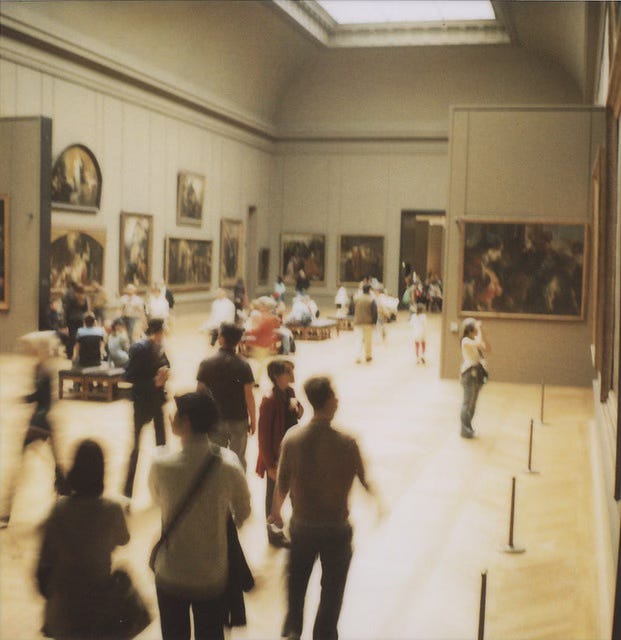
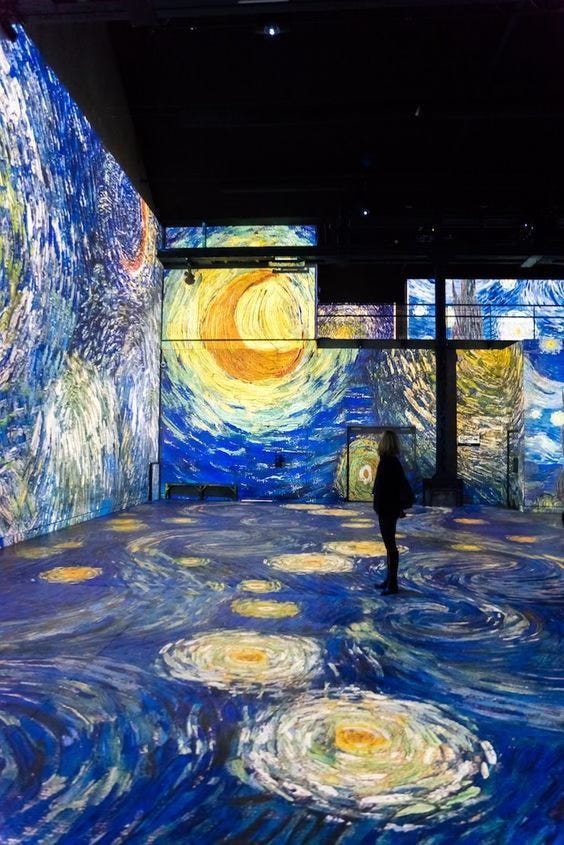
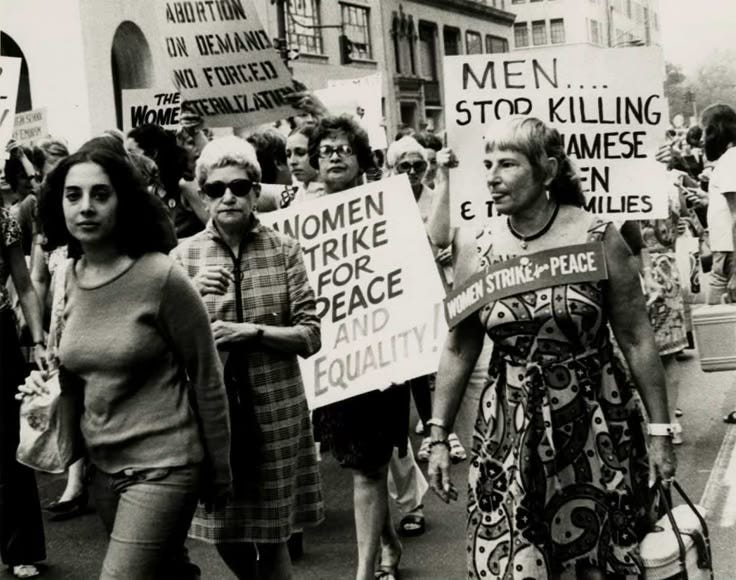
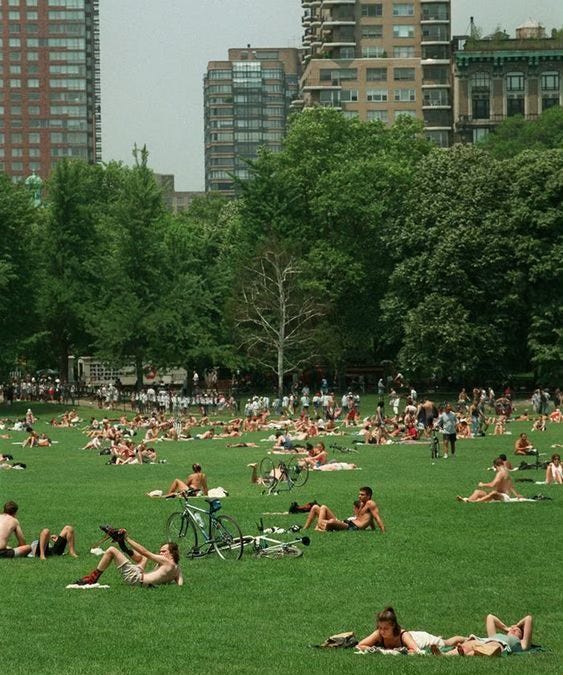

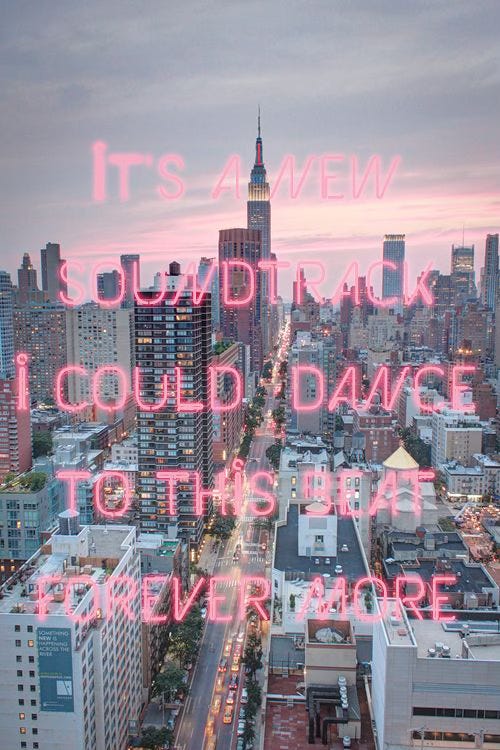
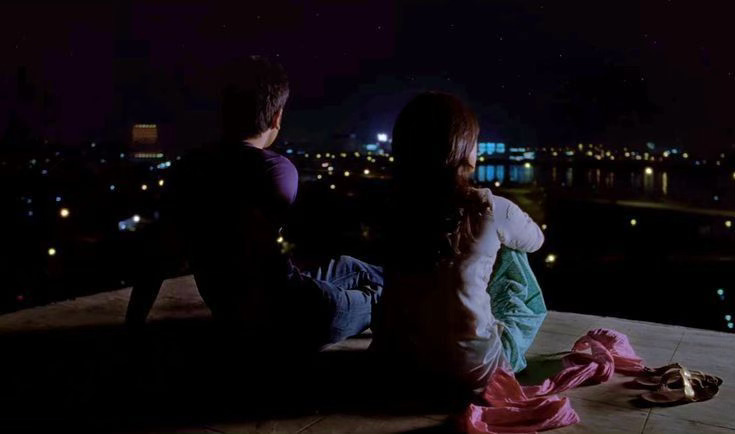
beautifully written
I love this piece, thank you for sharing <3